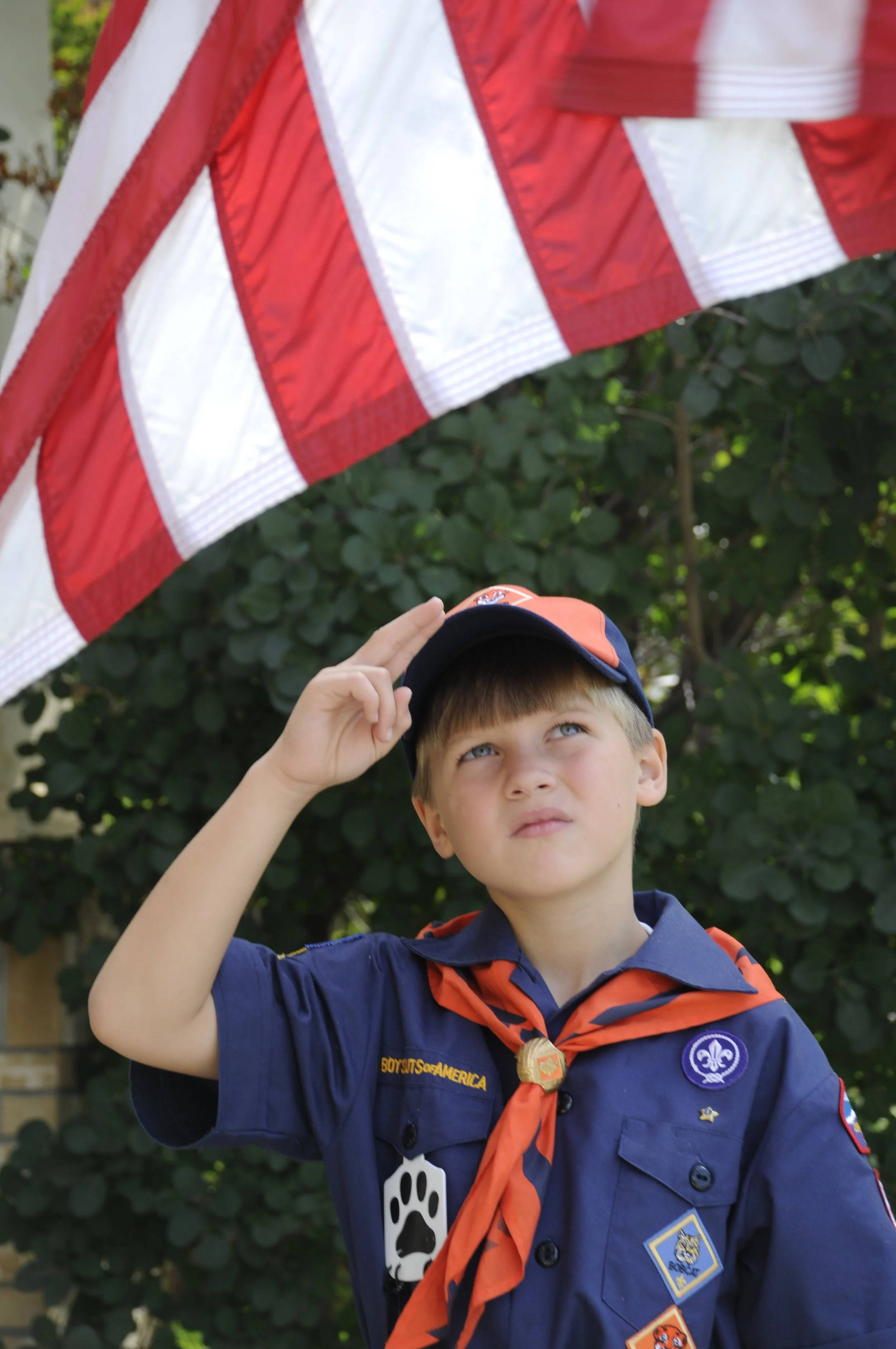Mission
The mission of Scouting is to prepare youth to make ethical and moral decisions over their lifetime and to grow into the best kind of citizen and leader by instilling in them the values of the Scout Oath and Law. There are multiple programs within Scouting. Cub Scouts is the program aimed at elementary school age youth in grades K-5th.
Cub Scout Motto
Do your best.
Scout Oath
On my honor I will do my best
To do my duty to God and my country
and to obey the Scout Law;
To help other people at all times;
To keep myself physically strong,
mentally awake, and morally straight.
Scout Law
A Scout is…
TRUSTWORTHY,
LOYAL,
HELPFUL,
FRIENDLY,
COURTEOUS,
KIND,
OBEDIENT,
CHEERFUL,
THRIFTY,
BRAVE,
CLEAN, and
REVERENT.
Uniforms
Scouts wear a uniform to promote comradery and show their achievements. The uniform also teaches the value of being neat in appearance and encourages good behavior.
In Pack 421, the formal “Class A” uniform is worn at Pack meetings, at certain times on campouts, and at certain other special events. Our Pack also has a “Class B” uniform (which is basically the Pack t-shirt) that is worn at Scouting events whenever the Class A uniform is not required.
Advancement
Achievements and tenure in Scouting are structured using “ranks”, with each rank linked to a specific grade level in school. Progression through the ranks is called “advancement”.
In Cub Scouting, the advancement requirements for each rank are organized into “adventures”, with each adventure covering a specific topic or set of skills, such as hiking, first aid, camp cooking, knife safety, campfire building, nature, or citizenship.
There are some adventures in each rank that are mandatory and others that are elective. Mandatory adventures reinforce core values of Scouting (e.g., citizenship, physical fitness, safety, outdoor skills), while elective adventures encourage Scouts to explore new interests (e.g., coin collecting) or share a favorite pastime with friends (e.g., bicycling, fishing).
Most of the mandatory adventures can be completed simply by attending all den meetings and Pack overnights each year. But in a few cases it might be necessary for a Scout to work at home on some adventures with help from parents. Advancement can also be earned by attending summer camps and other special events offered by our local Scouting America district and council.
Duty to God
The Scout Oath has included an obligation “to God and my country” since Scouting America was founded by Congress in the 1910’s. Some families considering joining Cub Scouts may have questions about what duty-to-God means in the context of Scouting.
Scouting America as an organization is absolutely non-sectarian, which means it it is not affiliated with or restricted to any particular faith or religious group. There are some Scouting units (packs and troops) that specialize in serving youth of a particular religious institution such as a Catholic church or Islamic mosque, but many Scouting units like Pack 421 serve families of all backgrounds.
At any given time, the membership in Pack 421 is a mix of youth and adult leaders with Christian, Muslim, Hindu, Jewish, Unitarian, and other religious beliefs. Some attend religious services regularly while others do not. As a Pack, we do not focus on those personal differences.
The Scouting program is designed to accommodate such diversity:
The duty-to-God component of the Scout Oath is a promise the Scout makes to follow the teachings of his/her family and religious leaders (whichever religion it happens to be)
The Reverent point of the Scout Law challenges the Scout to be reverent toward God (without specifying any specific faith or creed), to be diligent in his/her religious training and duties (whatever those happen to be), and to be respectful of the religious beliefs of others
Adult volunteers who apply to be Scout leaders agree to a Declaration of Religious Principle that affirms the leader's willingness to respect the religious precepts of Scouting (without imposing on the leader a requirement to ascribe to or practice any particular religion)
During each year of the Cub Scout program there is one skills adventure that focuses on Family & Reverence. Instead of being done at a den meeting, the activities for the Family & Reverence adventure are typically done at home with personalized guidance from parents and (as applicable) the family’s religious institution. To get a sense of the how the Cub Scout Family & Reverence adventures are defined and evolve from year-to-year, take a look at the adventure requirements of the 1st Grade and 4th Grade years.
A few times a year at certain Pack 421 events, we try to model the Reverent point of the Scout Law with a brief, non-sectarian reflection: e.g., giving thanks for opportunities and blessings, or to impart a principle of good moral character such as the Golden Rule which asserts the basic dignity of all people.
If you have questions or concerns about this topic, please reach out to a Pack leader via email or inquire in-person at one of our events.

